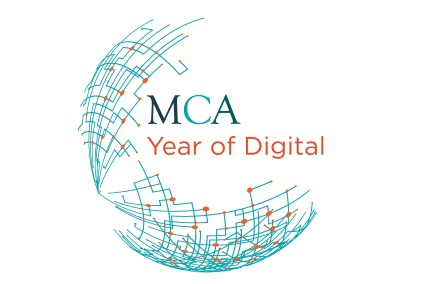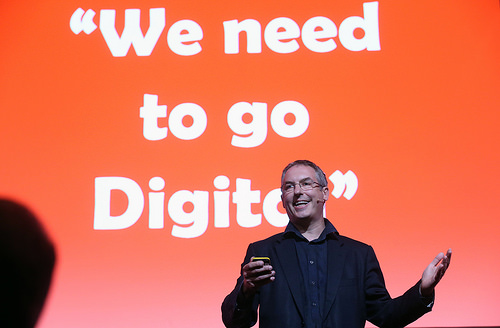Digital is clearly the future and so Britain’s Digital skills have come under the spotlight. The focus has understandably been on what we teach at school. The Government has begun to respond by introducing computer coding in the primary school curriculum. But while the skills of schoolchildren are important, Rob Price, Head of Digital at Atos, believes that there is a group of people in Britain who face, if anything, an even sharper skills challenge: those in work.
“These days a forty-something worker may have up to thirty years left at work,” says Rob. “Yet they may have been educated before the omnipresence of computers. While they have caught up with some technology on the job, very few will have had formal Digital training. Meanwhile the Digital Natives all around them have an intuitive mastery of all sorts of devices and capabilities, such as gamification. The assumptions of the younger generation are making their way into the world of work and will eventually become the norm. How will those already in work keep up?”
Atos is addressing this problem by introducing a “reverse mentoring scheme”. Initially, this aligned a Digital Native (graduate intake) with each member of the UK and Ireland Executive. The Digital Native would mentor the Executive team member on the use of social media as a communications and collaboration tool. In part, the programme considered what makes a good internal community in an Enterprise Social Network. It examined what a business leader in the organisation could do to interact effectively across the business. The result was immediate changes in the way Atos Executives and their teams work.
Based on the pilot scheme's success, Atos extended it to include all those within the Top 100 managers in the UK who were keen to opt in. Not everyone did, at first, with some respondents saying “I thought I was fairly digitally switched-on anyway”. Rob suggests that this sort of reaction illustrates the challenge that Britain faces. “Superficially my age group may feel that it ‘gets’ Digital. Yet only when you truly appreciate Digital's power or disruptive opportunity it presents for individuals and organisations, can you determine whether you need assistance or not.”
Rob explains that it’s important to start with a position of openness and parity. He recalls his own personal experience, where his mentor, after a short silence, opened the discussion with “I’m not sure what I can tell you given your role.” Despite these misgivings, Rob noted that “as soon as he started talking about his perspectives on what made social communities more effective, I realised that I did have something to learn from him. There is always something you’ve not tried, something you weren’t even aware of.”
Making the space to listen actively, to spot the insight, is often the challenge. Managers are understandably busy and need to deliver imminent results. Yet some have found the initiative valuable for the practical advice they could get – for example, how to access a corporate social network through their phone.
Kevin Wilkinson, SVP Human Resources in Atos UK and Ireland, described his experience as a positive one. “When the idea was first suggested, I was intrigued by the prospect of being mentored by one of our graduates. I've really enjoyed the sessions. They helped me personally in adopting new ways of working and collaborating. Importantly, they also gave me a much better understanding of how our future workforce is thinking. The mentoring is still happening and is of real value to me.”
Atos has also created another learning tool: an app for employees, codenamed Digital Ninja. “We built the app to act as a personal guide to Digital,” says Rob. “It provides clues and links to training on 'known unknowns' and subjects that are likely to be good indicators of Digital understanding.” Atos applied gamification principles to the app, setting new ‘quests’ and providing rewards. The approach has helped drive interest, engagement and adoption. “Our goal,” continues Rob, “was to help more of our 10,000 employees in the UK to cross the digital divide – and, by enabling them to deepen their own Digital understanding, to drive the Digital Transformation of our whole business.”
In its recent submission to the House of Lords Digital Skills Committee Enquiry, the MCA commented on education issues and the need for the development of core Digital skills. It also raised other issues, such as the importance of combining technical accomplishment with creativity to get the best from the Digital opportunity. But following the lead of Atos and other members, our submission also highlighted the needs of the existing workforce. We are living longer and working longer. We need more training and development in any case. But Digital moves and changes fast. So our training needs to be less a matter of occasional courses and more a fluid, constant process of learning. MCA members are taking the lead in responding to this challenge. But the UK needs to tear up the training rulebook, as Atos has done, and develop new approaches to the Digital workplace training challenge – urgently.
 The above article was written as part of the MCA Year of Digital
The above article was written as part of the MCA Year of Digital

